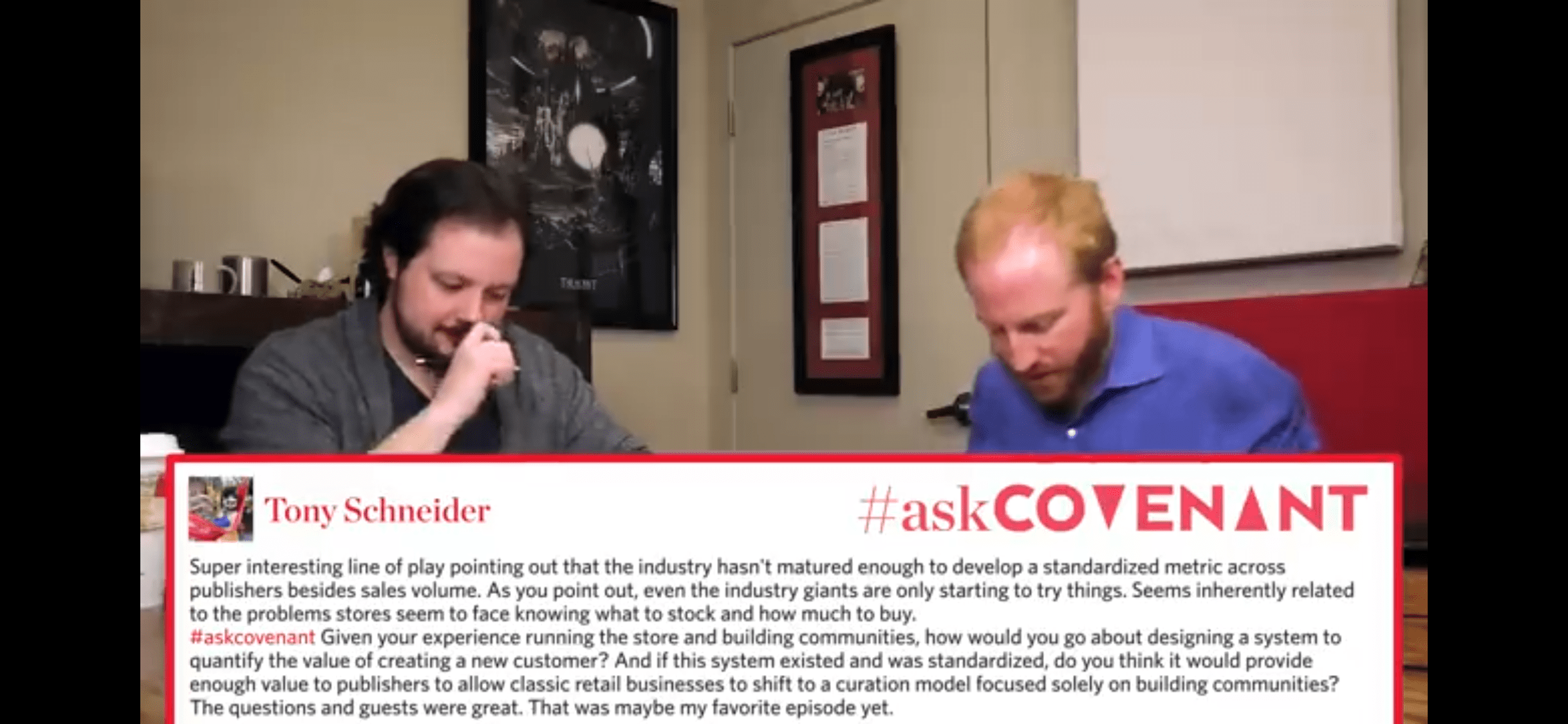![]() This post was published more than 6 years ago.
It's likely the contents are obsolete or nostolgic.
If you think the contents are worth updating, open an issue.
Otherwise, sit back and enjoy the stroll down memory lane.
This post was published more than 6 years ago.
It's likely the contents are obsolete or nostolgic.
If you think the contents are worth updating, open an issue.
Otherwise, sit back and enjoy the stroll down memory lane.
Question featured on The Covenant Cast
For the past decade, my day job has almost always involved trying to understand business domains. This involves grappling with the concepts, terminology, problems, and motivations of various industries I never thought I’d find myself in.
Ever since I cracked open my first pack of Magic the Gathering in grade school, I’ve been infatuated with the concept of expandable games. That game (and others) scratch a very similar itch that for some reason I can’t seem to get enough of.
These games have a niche industry and are filled with complexities like any other – it also seems to be growing rapidly. For instance, in the 2000s, I would never have dreamt of a show like Parks and Recreation would feature a game like Settlers of Catan.
It’s one of the few social things that come to mind that are actively bringing people together in real life as opposed to digital environments. I think that human interaction is going to become increasingly important in an increasingly digital world.

As a result, I’ve been completely hooked by the Covenant Cast by the guys at Team Covenant. They, too, share this fascination and are intimately involved with it since it’s their business domain. It has easily become one of, if not my favorite, podcasts.
In the podcast, they talk about the challenges of running a hobby game store and the state of their industry at large.
Having spent some of my most cherished memories playing games, I’d be lying if I hadn’t daydreamed about doing this.
Some of my favorite episodes talk about how to evolve past the traditional retail model of game stores.
To quote one of my favorite episodes of The Office:
Business Student #1: Sir, as a company that primarily distributes paper, how have you adapted your business model to function in an increasingly paperless world?
Michael Scott: We can’t overestimate the value of computers. Yes, they are great for playing games and forwarding funny emails, but real business is done on paper. Okay?” Write that down. [whole class types it on their laptops]
While Michael’s response is amazing, the question is legitimate and very similar to the problems addressed in the podcast.
- Why would someone buy something from a local store when they can get it online for cheaper?
- Why is the hobby not enjoyed by a more diverse audience?
- Can fostering a great community be the business model?
You can see the guys answer my question in episode in Episode 97. I was referencing the “Spirit of the Local Game Store” discussion in a previous episode.
Given how much I enjoy the podcast, I was flattered to have my question discussed. It’s also a great example of the evolving ways in which content creators are engaging with their audiences.
Until next time, keep playing.
See a mistake? Kindly let me know by filing an issue